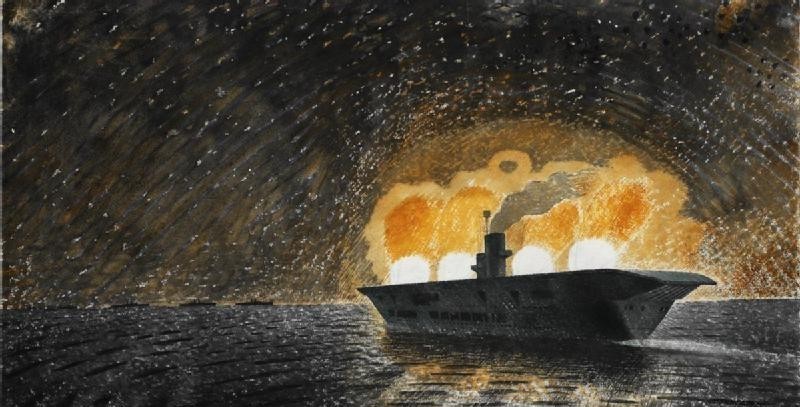The question “Where are the war poets? was asked as early as 30 December,1939 in an editorial of the Times Literary Supplement. To that blunt question Herbert Read’s “To a Conscript of 1940” is a masterful reply. On June 13th 1940 the question of the exemption from military service of Auden and Isherwood was raised in Parliament (Hansard). Below, are four poets’ replies to the implications of that question.
War Poet
We in our haste can only see the small components of the scene
We cannot tell what incidents will focus on the final screen.
A barrage of disruptive sound, a petal on a sleeping face,
Both must be noted, both must have their place.
It may be that our later selves or else our unborn sons
Will search for meaning in the dust of long-deserted guns,
We only watch, and indicate and make our scribbled pencil notes.
We do not wish to moralize, only to ease our dusty throats.
– Donald Bain (1922- )
Where are the war poets?
They who in folly or mere greed
Enslaved religion, markets, laws,
Borrow our language now and bid
Us to speak up in freedom’s cause.
It is the logic of our times,
No subject for immortal verse –
That we who lived by honest dreams
Defend the bad against the worse.
– Cecil Day Lewis (1904-72)
A Note on War Poetry
Not the expression of collective emotion
Imperfectly reflected in the daily papers.
Where is the point at which the merely individual
Explosion breaks
In the path of an action merely typical
To create the universal, originate a symbol
Out of the impact ? This is a meeting
On which we attend
Of forces beyond control by experiment –
Of Nature and the Spirit. Mostly the individual
Experience is too large, or too small. Our emotions
Are only ‘incidents’
In the effort to keep day and night together.
It seems just possible that a poem might happen
To a very young man : but a poem is not poetry –
That is a life.
War is not a life : it is a situation ;
One which may neither be ignored nor accepted,
A problem to be met with ambush and stratagem,
Enveloped or scattered.
The enduring is not a substitute for the transient,
Neither one for the other. But the abstract conception
Of private experience at its greatest intensity
Becoming universal, which we call ‘poetry’,
May be affirmed in verse.
– T.S. Eliot (1888-1965)
War Poet
I am the man who looked for peace and found
My own eyes barbed.
I am the man who groped for words and found
An arrow in my hand.
I am the builder
Whose firm walls surround
A slipping land.
When I grow sick or mad
Mock me not nor chain me ;
When I reach for the wind
Cast me not down
Though my face is a burnt book
And a wasted town.
– Sidney Keyes (1922-43)
